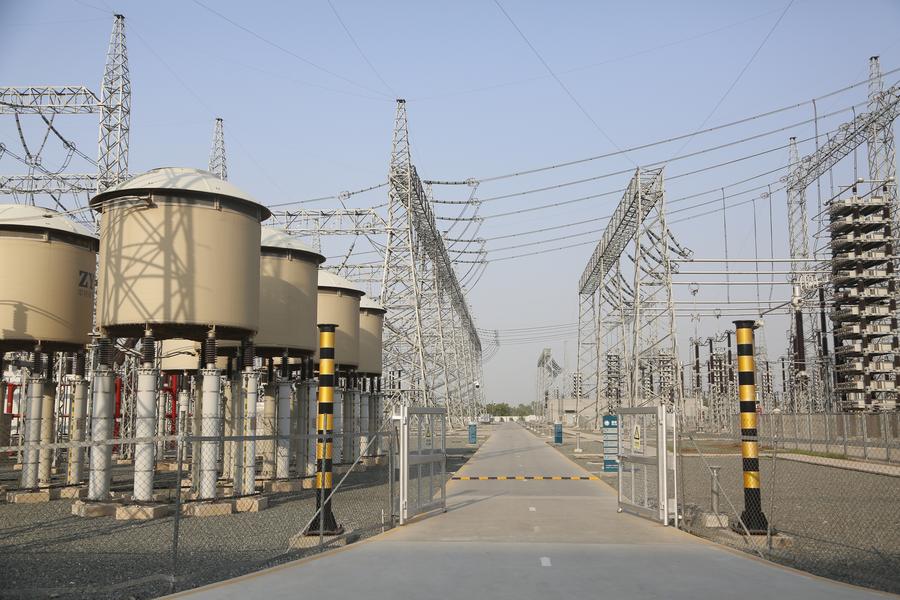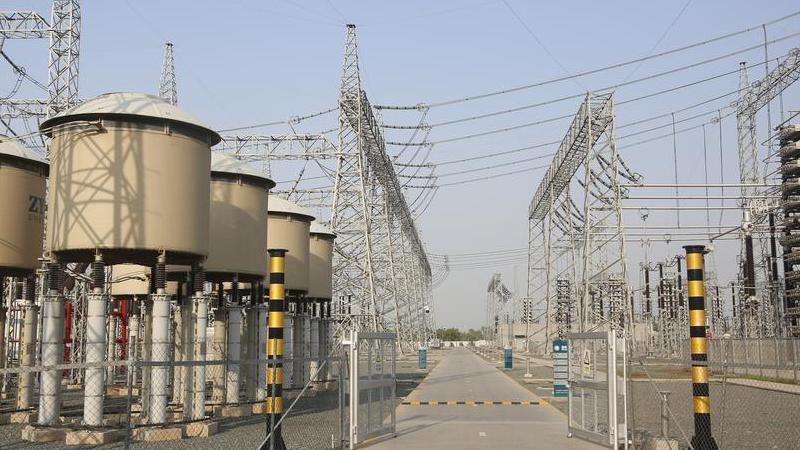
This photo taken on July 3, 2023 shows a view of the ±660kV Matiari-Lahore high-voltage direct current (HVDC) transmission project under the China-Pakistan Economic Corridor (CPEC) on the outskirts of Lahore, Pakistan. (Xinhua/Ahmad Kamal)
The building of a green China-Pakistan Economic Corridor demonstrates China's vision of aligning development with eco-friendly initiatives, a Pakistani environmentalist has said.
by Ali Jaswal
ISLAMABAD, May 28 (Xinhua) -- The building of a green China-Pakistan Economic Corridor (CPEC) demonstrates China's vision of aligning development with eco-friendly initiatives, a Pakistani environmentalist has said.
The China-proposed Belt and Road Initiative envisions green development, and similarly, its flagship project CPEC is following the same methodology, Zainab Naeem, head of Ecological Sustainability and Circular Economy at Sustainable Development Policy Institute, an Islamabad-based think tank, told Xinhua in a recent interview.
"So I think CPEC is one aspect where we do look forward to aligning it with the Chinese vision, and of course, learning from the Chinese. Now both governments are on the same page in terms of developing renewable energy projects and investing in eco-friendly initiatives," she said.
Launched in 2013, the CPEC is a corridor linking the Gwadar Port in southwest Pakistan's Balochistan province with Kashgar in northwest China's Xinjiang Uygur Autonomous Region, which highlights energy, transport, and industrial cooperation in the first phase, while the new phase expands to fields of agriculture and livelihood, among others.
Apart from that, Pakistan can also learn from China's new green development program and other initiatives, Naeem said, adding that China believes that humans and nature can coexist harmoniously and that is why it has prioritized environmental protection and conservation as part of its new development strategy.
Regarding ecological consideration and environmental protection as the key to human development, China is focusing more on improving people's living standards and offering them a favorable environment, said the environmentalist.
"So under the new development strategy, China is introducing different initiatives with an improved governance structure in which the government is taking the lead and the private sector will be responsible for reporting data and managing their emissions," she said.
Naeem added that China has initiated the ecological red-line system to protect not only the already designated protected areas but also the new ecological parameters that could enhance environmental health.
"In the context of urban climate resilience, I believe this initiative can be something that other countries can also learn from," said the environmentalist.




 A single purchase
A single purchase







